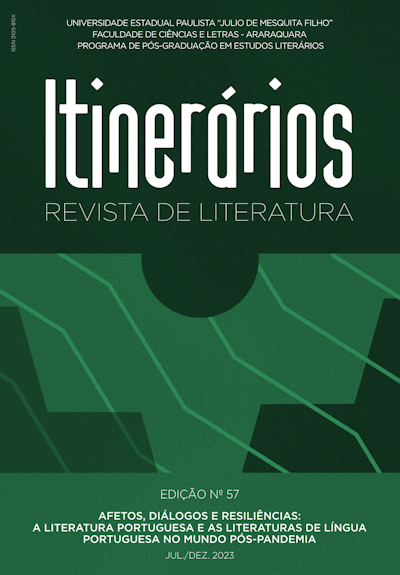Reading and experiencing poetry in times of indigence
DOI:
https://doi.org/10.58943/irl.v1i57.18742Keywords:
Poetry, Covid-19 pandemic, Surrealism, Teaching poetryAbstract
And why poetry in times of indigence? We suggest a twist on the question originally proposed in a verse from “Bread and Wine”, a poem by Hölderlin, and a move from 19th century Germany to the Brazilian public university of 2023. The sense of crisis that has reached unforeseen dimensions since March 2020 is not new, nor is it “just” the result of the pandemic in one of the countries most affected by the coronavirus. In this article, we present assumptions from the research we are currently conducting “Experiencing Poetry: a poetic project for times of indigence”, reflecting on the progressive loss of meaning of the world in recent years, caused by the indigent combination of the Covid-19 pandemic with unemployment, mourning, loneliness and self-absorption and its impacts on working with poetry in the classroom with undergraduate students in Literature. We start from the conception of Poetry inferred from our work with the life/work of Mário Cesariny, in his surrealist and romantic dialog: an affirmation - not necessarily linked to the writing of verses - of a revolted and passionate way of life, raised everyday against everyday life, in order to shed light on an incessant production of images of desire. It will then be possible to return to written production to perceive poems as disruptive and disturbing powers of the imaginative limits established by the rhetoric of permanent crisis and its daily effects. It seems urgent to adopt other didactic strategies for accessing an experience with poetry in a scenario of growing misery and violence, which have a direct impact on the possibilities for the liberating realization of the poetic image.
Downloads
Published
Issue
Section
License
Os manuscritos aceitos e publicados são de propriedade da revista Itinerários. É vedada a submissão integral ou parcial do manuscrito a qualquer outro periódico. A responsabilidade do conteúdo dos artigos é exclusiva dos autores. É vedada a tradução para outro idioma sem a autorização escrita do Editor ouvida a Comissão Editorial.

